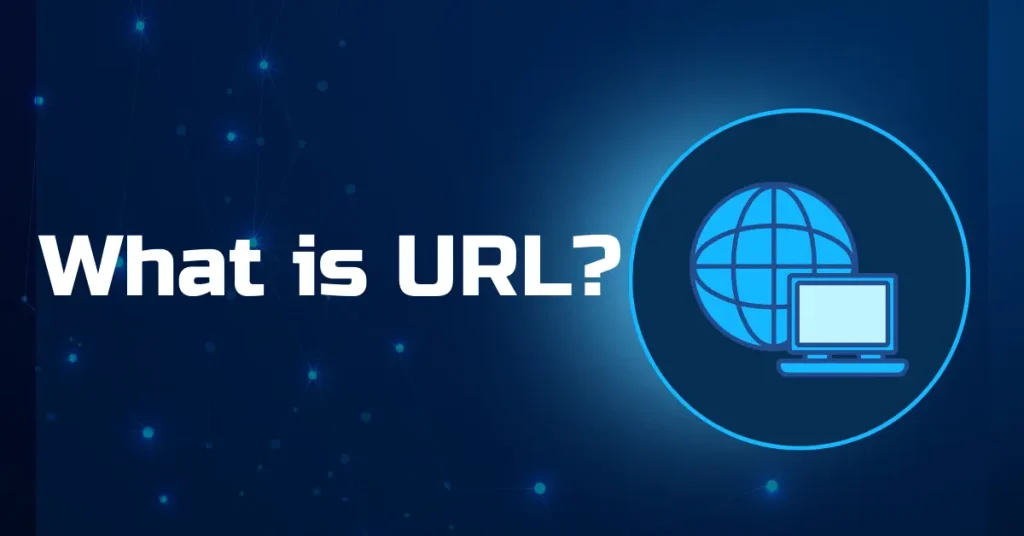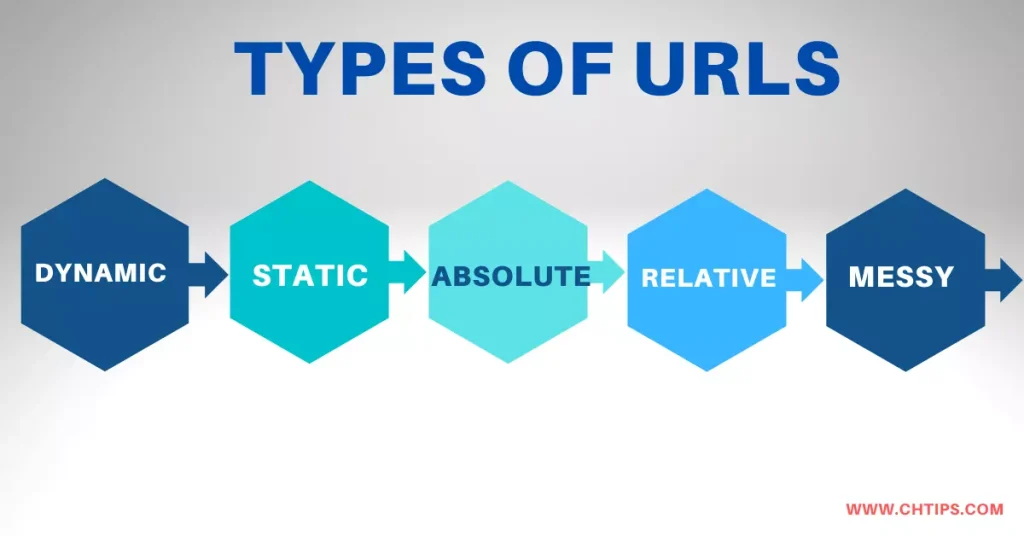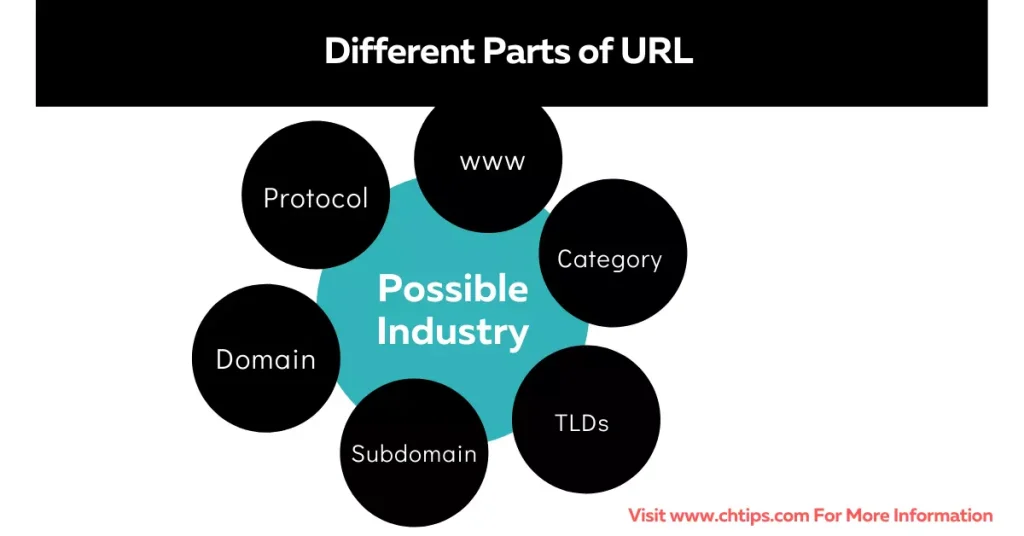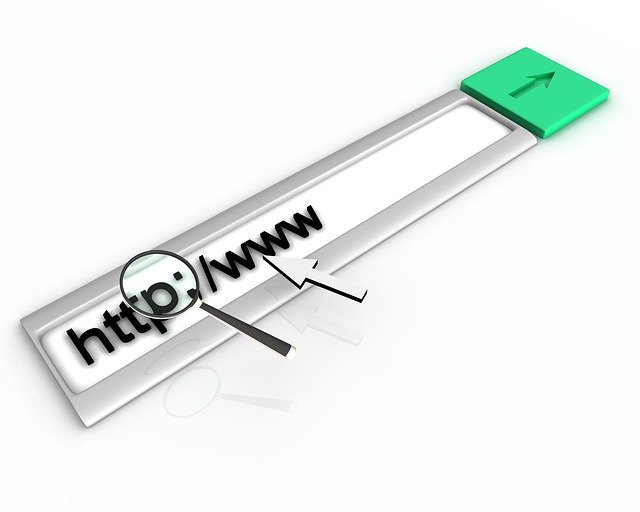URL stands for Uniform Resource Locator. A British scientist, Sir Tim Berners-Lee, introduced the URL concept in 1994.
To use and access URLs, internet browsers are extensively used. URLs are used to access websites using the Internet.
ARPANET was introduced in 1960 and used TCP/IP [Transmission Control Protocol / Internet Protocol] in a computer network with the assistance of the Internet.
There are different types of URLs that look similar but with distinct approaches.
URLs are used and utilized extensively in navigation and to connect to the internet through websites and applications.
These URLs can be accessed for downloading files, movies, music and documents. URLs can be very handy in accessing information and data on internet.
What is a URL?
URLs are used to access websites and applications over the Internet and are the means of communication between the users and host.
Every website URL is unique; the URLs of two websites cannot be the same.
URLs are a form of address used by internet browsers to connect and communicate with resources like websites, applications, and email clients.
Modern browsers like Google Chrome, Mozilla Firefox, Safari, and Internet Explorer can access websites and software applications / Tools.

The URLs can be case-sensitive; therefore, the developer or programmer has to pay attention while coding or developing; moreover, these types of URLs are not SEO-friendly.
Every website on the Internet has a unique IP address [Internet Protocol], which is strictly numerical.
For Example, you are reading the website www.chtips.com, whose IP address is 172.67.142.38.
When you enter a website name or domain name (I will discuss what is domain name later in the article) in an internet browser like Google Chrome.
It converts the domain name into the IP address for contacting the website or application.
The IP address is difficult to remember, and hence the respected authority found it easier to memorize the name of any website and therefore implemented the strategy
!! And it worked !!.
The browser does not understand any website name; it converts to an IP address and later checks on the Internet for faster communication.
5 Different Types of URLs
The URL can be categorized or divided into 5 different types of URLs
- Dynamic URL
- Static URL
- Obfuscated
- Messy URL
- Absolute
- Relative

#1. Dynamic URLs
The dynamic URLs are created using programming languages like PHP, JAVA, and Python.
The URLs are not easy to read and remember; also, they are complicated due to some alphanumeric characters and symbols.
These types of URLs are not SEO-friendly, according to Google.
For Example
https://www.chtips.com/?id=123abc
#2. Static URLs
The static URLs are never changed; they are hardcoded during programming or coding.
These URLs are generally found on static websites that are hardly altered or updated.
For Example.
- https://www.chtips.com/disclaimer
- https://www.chtips.com/terms-of-use/
- https://www.chtips.com/privacy-policy/
#3. Obfuscated URLs
These URLs are deceiving, created by spammers and hackers to trick users into entering sensitive personal information like name, address, contact no email, and credit | debit card details.
After receiving this important information, these spammers misuse your data for their benefit.
These URLs are generally spread over email bombardment and are commonly known as “Phishing Attacks“; the websites are called “Phishing Websites“.
These URLs contain malicious programs designed, developed, and programmed to corrupt and damage your computer system.
To avoid these malicious programs entering your computer system.
Secure Socket Layer (SSL) was started by Taher Elgamal, an Egyptian cryptographer who was a scientist at Netscape Corporation, a famous organization of its time that helped our computer system's security immensely.
#4. Messy URLs / Unpleasant URLs
These URLs are pretty long, filled with characters, numbers, and digits that are hard to write and memorize, similar to dynamic URLs.
For Examples
https://www.chtips.com/computer-fundamentals/what-is-computer-system-and-its-benefits-123213!@#!@#
#5. Absolute URL
The absolute URLs are very pretty with all the important attributes of a good URL like the hostname, protocol, www, domain name, TLD, or domain code.
This URL contains all the necessary information like files, folders, images, videos, etc. This URL is self-sufficient to fetch the data and information from the server using a modern browser.
#6. Relative URL
These types of URLs are more compact than absolute URLs. They contain folder names and file names to use and access over the Internet.
Useful Video On: URLs Types
3 Different Parts of URL Address
The different parts of the URL are mentioned below
- Protocol
- Domain
- Subdomain
- Domain Code or TLDs
- Category or Directory
- www

#1. Protocol
There are two types of protocol
- HTTP (Insecure)
- HTTPS (Secured)
#2. HTTP {Hyper Text Transfer Protocol}
In 1989, Tim Berners-Lee started the initiation of HTTP at CERN. HTTP is considered to be an insecure protocol version.

The HTTP version does not secure websites and applications as SSL {Secure Socket Layer} is unused and utilized.
The SSL is an intermediate between the host and the user and encrypts sensitive data and information from hackers and crackers.
#3. HTTPS {Hyper Text Transfer Protocol Secured}
HTTPS is known as Hypertext Transfer Protocol Secure, a combination of HTTP and SSL with TSL (Transport Layer Security).
The HTTPS version uses SSL, which is responsible for the additional layer of security which prevents websites and web applications from unauthorized access and spammers and hackers.

In HTTPS connections, data and information is encrypted using cryptography which is very difficult to decrypt.
Hackers find it very difficult to steal and misuse your personal and sensitive information, which is very secure and cannot be misused.
#4. Domain Name | TLDs
The Domain name is the website’s name used to open and access modern browsers like Chrome, Firefox, Safari, etc.
The domain names are unique and different for each website and web application.
#5. SubDomain
Web hosting companies offer users the ability to create a subdomain of their choice. For Example,
https://www.tutorials.chtips.com/ is a subdomain created on the domain https://www.chtips.com/.
The number of subdomain users that can create entirely depends upon the allotted quota by the hosting provider.
Subdomains are very handy while creating web applications and websites for testing.
#6. Domain Code or TLDs
There are numerous domain codes or TLDs {Top Level Domain} available; some of them are mentioned below.
| .com | Commercial |
| .org | Organization |
| .in | India Country Specific Domain |
| .net | Network |
| .gov | Government |
| .edu | Education |
#7. Category or Directory
For Example, the category or directory is any website or web application’s internal structure.
- https://www.chtips.com/computer-fundamentals
- https://www.chtips.com/full-forms
In the above examples, computer fundamentals and full forms are the directories created on the domain name www.chtips.com.
#8. WWW
The WWW stands for World Wide Web. It is denoted as the standard information system.
Types of URLs PDF Download
Different Types of Websites
- Jobs Website.
- Matrimony Website.
- eCommerce Website.
- Business Website.
- Entertainment Website.
- Portfolio Website.
- Media Website.
- Educational Website.
- Blog.
- News Website.
- Community Website,
Difference Between Static and Dynamic URL
| # | Static URL | Dynamic URL |
|---|---|---|
| 1 | This URLs are permanent that are not changed. | This URLs consists of parameters that are changed programmatically. |
| 2 | The static URLs content are not changed and remain as it is unless it is updated or changed by owner. | The content of the dynamic URLs are changed more frequently. |
| 3 | According to Google SEO friendly URLs rank well on SERP [Search Engine Result Pages], Therefore static URLs has a good chance of ranking. | Dynamic URLs are not considered as SEO friendly and therefore has limited chances of ranking on search engines. |
| 4 | Static URLs tend to be more user-friendly and easier to remember | Dynamic URLs can be longer and difficult in remembering. |
| 5 | Static URLs are highly cacheable. | Dynamic URL has less chances of caching. |
5 Famous Website
- www.Google.com.
- www.Youtube.com.
- www.Facebook.com.
- www.Twitter.com.
- www.instagram.com.
What are the Six Types of Web Pages?
- Homepage.
- Product Page.
- Landing Page.
- About Page.
- Contact Page.
- Search Page.
5 Qualities of a Great Website.
- Neat and Clean Design.
- Responsive Design.
- Fast Loading Webpages.
- Easy to Use & Navigate.
- User Friendly.
10 Examples of Website URLs
| # | Website Name |
| 1 | https://www.google.com/ |
| 2 | https://www.Yahoo.com/ |
| 3 | https://www.Instagram.com/ |
| 4 | https://www.Twitter.com/ |
| 5 | https://www.wikipedia.com/ |
| 6 | https://www.facebook.com/ |
| 7 | https://www.bing.com/ |
| 8 | https://www.wikihow.com/ |
| 9 | https://www.geeksforgeeks.com/ |
| 10 | https://www.w3schools.com/ |
4 Components of URL
- Scheme
- Host
- Path
- Query String
People Are Also Reading
- Advantages and Disadvantages of Computer
- Advantages and Disadvantages of Fifth Generations of Computer
- Advantages and Disadvantages of First Generation Computer
- Characteristics and Features of Third Generation Computer
- What is Versatility In Computer Systems
- Essential Attributes of Good Software
- Smallest Unit of Computer Memory Storage
- How Do Computers Works at the Most Basic Level
- 12+ Characteristics of Fourth Generations of Computer
- Advantages and Disadvantages of Fifth Generations of Computer
- What are the Five Generations of Computer System?
- Explanation on a Brief History of Computers
- 10 Characteristics and Features of Second Generation Computer
- What are the Five Generations of Computer System?
- What are the Functions of BIOS in Computer
- Different Types of Icons in Computer
- Computer Basic Tutorials
What Is The Full Form of a URL?
The Full Form of URL is Uniform Resource Locator.
What are Examples of URL and IP Address?
| URL | IP Address |
| www.chtips.com | 65.108.75.199 |
| www.google.com | 142.250.189.196 |
| www.twitter.com | 104.244.42.129 |
| www.facebook.com | 157.240.22.35 |
Frequently Asked Questions [FAQs]
What is the Hostname in the URL?
The hostname of the URL is a USV string containing the domain name of the URL.
Is URL a Web Address?
A Url is a web address used to access any website or application.
Does URL Impact Search Engine Ranking?
Google consider URL as a ranking factor.
What is an Example of a URL?
https://www.wikipedia.com
What is the Most Popular URL?
www.google.com
Who is the Father of URL?
Sir Tim Berners-Lee
What was the First Browser?
The WorldWideWeb browser.
What is www Called in a URL?
World Wide Web.
What is the Most Popular Website in the USA?
Google.com
Youtube.com
Facebook.com
Is YouTube Considered a Website?
Youtube is Video Sharing Website.
URLs are of Two Types
Absolute and Relative URLs
How Many Types are Available in Relative URLs?
3 types are available in Relative URL.
Website Address Example
www.Google.com
www.Facebook.com
www.Instagram.com
www.Twitter.com
www.Chtips.com
Valid url Examples
www.Google.com
www.Facebook.com
Give 5 Examples of Website Address
1. https://www.google.com/
2. https://www.Yahoo.com/
3. https://www.Instagram.com/
4. https://www.Twitter.com/
5. https://www.wikipedia.com/
Get In Touch
URLs are considered essential for internet navigation, they make users capable to access websites, downloading files, movies, and songs, access information and knowledge.
URL stands for Uniform Resource Locator and is used for accessing resources and information from the internet.
There are various elements and components in an URL that helps browser and servers to find desired results.
Some of the elements are included.
- Scheme / Protocol.
- Domain.
- Port.
- Path.
- Query.
I have also written and compiled some articles on computers and telecommunications, and please go through them.
I hope you will like reading it.
I hope that all the questions and queries related to 5 Different Types of URLs and URL Meaning have been answered here.
Don’t hesitate to contact me, and if you need to add, remove, or update anything from the article, please let me know in the comment section or via email.
I will be more than happy to update the article. I am always ready to correct myself.
I was hoping you could share this article with your friends and colleagues; this motivates me to write more on related topics.
!!! Thank You !!!